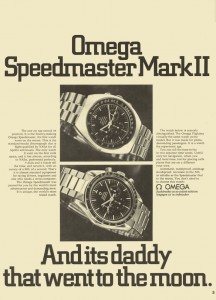Even though we might like to think that these tough watches of ours can handle whatever scenario they might face, sometimes a tool watch just doesn’t fit the occasion. Whether it’s suiting up for work, or attending a wedding, a slim and simple dress watch is often the perfect choice of wrist wear. Of all the iconic dress watches ever made, and currently on the market today, there’s one family of watches that have truly gained a legendary status, the reference 96/5196 Calatrava series from Patek Philippe. Through its both timeless and elegant design, perfect proportions, and beautiful movements, the Calatrava is arguably the ultimate gentleman’s wristwatch. While it might be far from a tool watch, we believe that the Calatrava is “Wound For Life” in a different sense.
The first Calatrava reference 96 was introduced back in 1932, the same year Patek Philippe was acquired by the well known Stern family. Despite the world’s economic conditions at the time, this watch turned around Patek’s sales with its now famous elegant smooth bezel, and almost Bauhaus-esque dial design. The 31-millimeters wide, and incredibly slim 9-millimeter thick case, housed Patek’s in-house calibre 12-400. This manually wound movement incorporated 18 jewels, and was finished exquisitely with Geneva stripes on its curved, pocket watch-like bridges. Some examples even qualify as somewhat of a tool watch (hardly!), as some movements were “Adjusted To Heat, Cold, and Isochronism”. Today, the reference 96 has become an especially collectible Patek, as they’ve becoming increasingly more and more difficult to find in top condition.
Several years later at the Basel fair of 2004, Patek introduced to us what is now regarded as the true successor to the original Calatrava, the reference 5196. This reincarnation of the reference 96, features the same iconic “form follows function” aesthetics, that the watch-loving world first fell in love with back in 1932, with some added 21st century flair. In efforts to modernize a classic, Patek scaled the watch up to a still conservatively sized 37 millimeters, and also added in the new calibre 215 PS movement. To this day, the 5196 is perhaps one of the most beautiful and purest references in all of Patek’s collections.
It’s interesting that the calibre 215 PS movement was chosen, as if the clear sharing of design cues wasn’t enough for the nostalgic collectors, the movement is strikingly similar to the reference 96’s calibre 12-400 in a multitude of ways. Firstly, both movements are manually wound, and have five bridges. Secondly, the two movements also both feature 18 jewels and are finished beautifully with the signature “Geneva Stripes”. Upon the release of the 5196, some collectors found the movement to be somewhat technologically outdated for a modern watch of this status, but we believe that it’s just another nod back to the brand’s earlier days.
So how exactly does Patek Philippe’s Calatrava fit the Wound For Life mantra? The answer is in not only the watch’s timeless air itself, but what the brand stands for. Patek has been known to always have produced greatly manufactured and designed watches that stand the test of time. Both the reference 96 and 5196 are watches that will never go out of style, and will always be relevant through their near-perfect designs and masterfully crafted movements. Patek is fully aware of the timeless nature of their pieces, as they claim in their ad campaigns that “You never actually own a Patek Philippe Philippe. You merely look after it for the next generation”. So when you come to the realization that a 47mm Panerai Submersible might not be the best match for a three-piece suit, a Calatrava, oozing with eternal class, good taste, and quality, should definitely be high up on your list.







